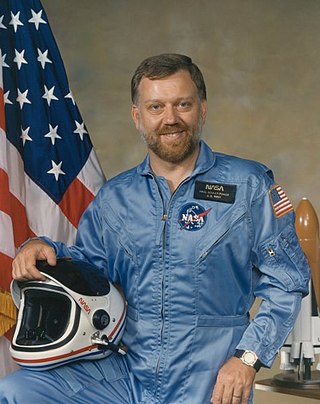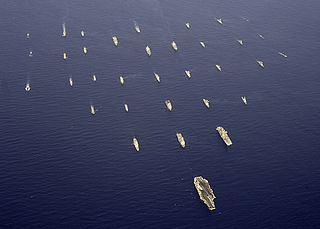Related Research Articles

The International Astronomical Union is a non-governmental organisation with the objective of advancing astronomy in all aspects, including promoting astronomical research, outreach, education, and development through global cooperation. It was founded in 1919 and is based in Paris, France.
An academy is an institution of secondary or tertiary higher learning. The name traces back to Plato's school of philosophy, founded approximately 385 BC at Akademia, a sanctuary of Athena, the goddess of wisdom and skill, north of Athens, Greece.
A midshipman is an officer of the lowest rank, in the Royal Navy, United States Navy, and many Commonwealth navies. Commonwealth countries which use the rank include Canada, Australia, Bangladesh, Namibia, New Zealand, South Africa, India, Pakistan, Singapore, Sri Lanka, and Kenya.
Post-nominal letters, also called post-nominal initials, post-nominal titles, designatory letters or simply post-nominals, are letters placed after a person's name to indicate that the individual holds a position, an academic degree, accreditation, an office, a military decoration, or honour, or is a member of a religious institute or fraternity. An individual may use several different sets of post-nominal letters, but in some contexts it may be customary to limit the number of sets to one or just a few. The order in which post-nominals are listed after a name is based on rules of precedence and what is appropriate for a given situation. Post-nominal letters are one of the main types of name suffix. In contrast, pre-nominal letters precede the name rather than following it, such as addressing a physician or professor as "Dr. Smith".

Paul Desmond Scully-Power, AM GOSE FRAeS is an Australian-American oceanographer, technology expert and business executive. In 1984, while a civilian employee of the United States Naval Undersea Warfare Center, he flew aboard NASA Space Shuttle mission STS-41-G as a Payload Specialist. He was the first Australian-born person to journey into space, and the first astronaut with a beard.

The Institution of Engineers of Ireland or the IEI, is the second oldest Engineering Society on the islands of Great Britain and Ireland, and was established in 1835. The institution primarily represents members based in Ireland.

A blue-water navy is a maritime force capable of operating globally, essentially across the deep waters of open oceans. While definitions of what actually constitutes such a force vary, there is a requirement for the ability to exercise sea control at long range.

The Institution of Engineering and Technology (IET) is a multidisciplinary professional engineering institution. The IET was formed in 2006 from two separate institutions: the Institution of Electrical Engineers (IEE), dating back to 1871, and the Institution of Incorporated Engineers (IIE) dating back to 1884. Its worldwide membership is currently in excess of 158,000 in 153 countries. The IET's main offices are in Savoy Place in London, England, and at Michael Faraday House in Stevenage, England.

The Board of Admiralty (1628–1964) was established in 1628 when Charles I put the office of Lord High Admiral into commission. As that position was not always occupied, the purpose was to enable management of the day-to-day operational requirements of the Royal Navy; at that point administrative control of the navy was still the responsibility of the Navy Board, established in 1546. This system remained in place until 1832, when the Board of Admiralty became the sole authority charged with both administrative and operational control of the navy when the Navy Board was abolished. The term Admiralty has become synonymous with the command and control of the Royal Navy, partly personified in the Board of Admiralty and in the Admiralty buildings in London from where operations were in large part directed. It existed until 1964 when the office of First Lord of the Admiralty was finally abolished and the functions of the Lords Commissioners were transferred to the new Admiralty Board and the tri-service Defence Council of the United Kingdom.
The Energy Institute (EI) is a professional organization for engineers and other professionals in energy-related fields. The EI was formed in 2003 by the merger of the Institute of Petroleum (dating back to 1913) and the Institute of Energy (dating back to 1925). It has an international membership of about 20,000 people and 200 companies. Its main office is at 61 New Cavendish Street, London. EI is a registered charity with a Royal Charter.
The Royal United Services Institute is a defence and security think tank headquartered in London, United Kingdom. It was founded in 1831 by the Duke of Wellington, Sir Arthur Wellesley.

The Chartered Institute of Arbitrators is a professional organisation representing the interests of alternative dispute resolution (ADR) practitioners. Founded on 1 March 1915, it was granted a royal charter by Queen Elizabeth II in 1979.
Sir John Knox Laughton was a British naval historian and arguably the first to delineate the importance of the subject of Naval history as an independent field of study. Beginning his working life as a mathematically trained civilian instructor for the Royal Navy, he later became professor of modern history at King's College London and a co-founder of the Navy Records Society. A prolific writer of lives, he penned the biographies of more than 900 naval personalities for the Dictionary of National Biography.
Rear Admiral James Vincent Purcell Goldrick, was an Australian naval historian, analyst of contemporary naval and maritime affairs, and a senior officer of the Royal Australian Navy (RAN). Following his retirement from the RAN, Goldrick was a fellow at the Sea Power Centre – Australia and an adjunct professor in the School of Humanities and Social Sciences in the University of New South Wales at the Australian Defence Force Academy. He was also a member of the Naval Studies Group at the Australian Centre for the Study of Armed Conflict and Society, an adjunct professor in the Strategic and Defence Studies Centre of the Australian National University and a professorial fellow of the Australian National Centre for Ocean Resources and Security at the University of Wollongong. He was a visiting fellow at All Souls College, University of Oxford in the first half of 2015, and a non-resident Fellow of the Lowy Institute from 2013 to 2018.

The term military medicine has a number of potential connotations. It may mean:

The Royal Canadian Military Institute (RCMI) is a private members’ organization located in Toronto, Ontario, Canada. It was founded as the Canadian Military Institute on January 14, 1890. General Sir William Dillon Otter set the founding principles: "to provide in an Institute for the defence forces of Canada a Library, museum and club for the purposes of the promotion of military art, science and literature, to gather and preserve the records of the defence forces, and develop its specialized field in Canadian history." The motto of the RCMI is Fidelis Per Manere.
Capt. Willard Franklyn "Bill" Searle Jr. USN (ret.) was an American ocean engineer who was principally responsible for developing equipment and many of the current techniques utilized in United States Navy diving and salvage operations.
The Military Service Institution of the United States was "a voluntary organization of officers of the Army for mutual improvement, fostered by Generals Sherman and Sheridan while they commanded the Army, and presided over by the senior major-generals, has now for many years been the constant means of widespread increase in the most advanced studies of the Science and Art of War." In his Annual Report (1892), Major-General John Schofield, commanding the Army.
The Royal Institute of Public Administration (RIPA) was a British professional public service institution and civil service training organisation that operated in the United Kingdom and overseas from its founding in 1922 to its closure in 1992. Today, its international training and consulting activities continue with Public Administration International Ltd. and 'RIPA International Ltd.
The Royal Institute of Navigation (RIN) is a learned society and a professional body for navigation. The RIN was founded in 1947 as a forum for mariners, pilots, engineers and academics to compare their experiences and exchange information. Today it is a leading centre for promoting knowledge in navigation and its associated sciences, including positioning, timing, tracking and conduct of a journey, whether on, in, over or under land, sea, air or space. The Institute has members in over 50 countries worldwide.